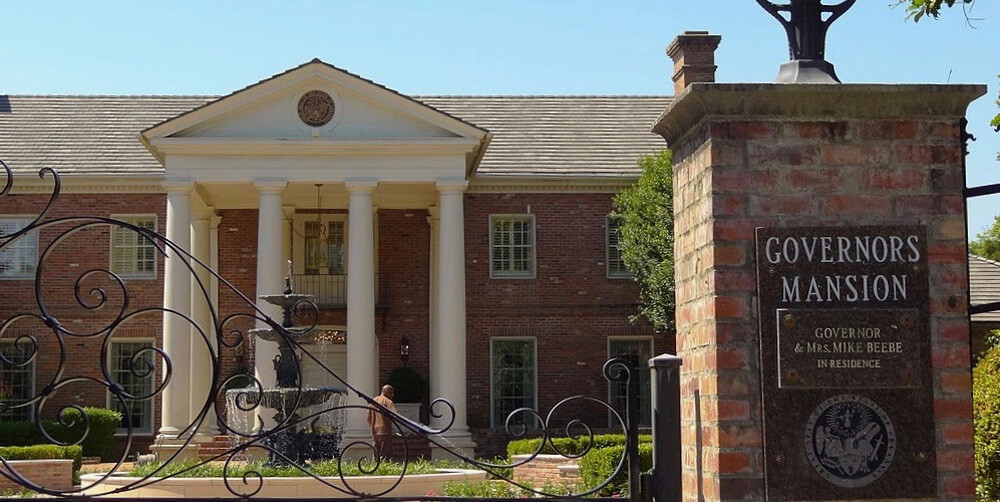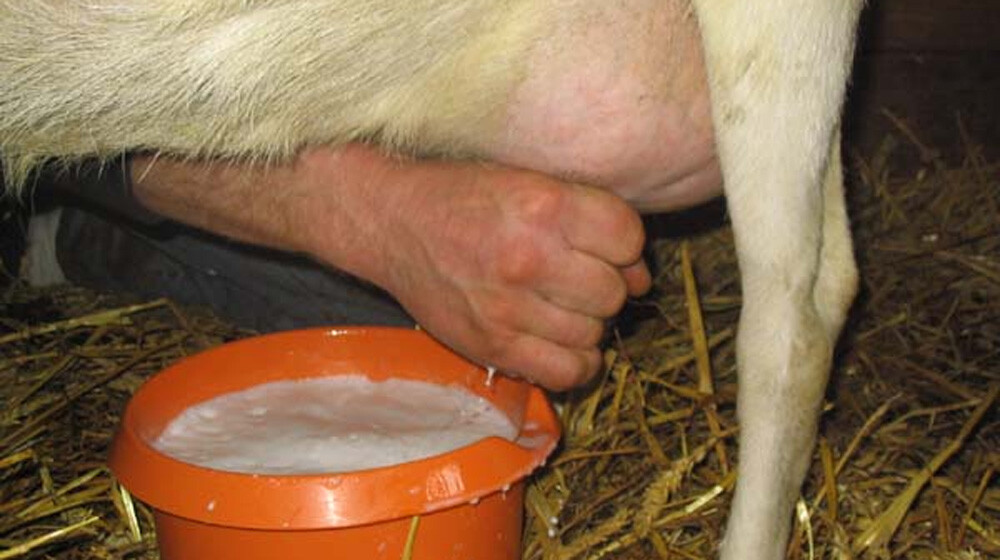5 Shocking Everyday Things Made By Prisoners

If you've ever driven down the road and seen a bunch of inmates picking up trash in orange jumpsuits, you just witnessed one of the many ways we use incarcerated people for financial gain. Everyone from murderers to unfortunate souls who get caught with a little stash of weed has the chance of becoming a source of free labor, and it ain't just collecting discarded water bottles off the side of the highway.
The very for-profit prison system has a long history of such practices, going all the way back to when prisoners basically became replacements for freed slaves after the Civil War. Even before that, prior to the Revolutionary War, England sent scores of inmates to America to work rather than be hanged for their crimes. The U.S., in particular, became quite adept at finding out all sorts of ways prisoners could forcibly "help." Indeed many prisons resemble some of the slave plantations that used to reside there, with the warden of Louisiana's Angola Prison saying that the best way to maintain a prison is to "keep the inmates working all day so they're tired at night."
What would it take for you to be able to spend a bit of time at a fancy politician's party or to be able to tend to the gardens that state leaders call home during their terms? Well, apparently, in some cases, all you have to do is have a jail sentence to your name. Yep, at last count, at least seven states use inmates as staff at governors' mansions and capitol buildings. Some of them are paid a little pittance for their work, be it gardening, catering, or janitorial duties, and some of them aren't even paid at all. Now, there are a few rules. We can't have just murderers traipsing around serving fruit tarts. Usually, a convict has to be associated with a nonviolent crime, go through a whole screening process, and possess a pretty good record while in the clink. It seems the American South really loves the practice of using prisoners in state government facilities. Louisiana has them grabbing lunch orders for legislators, while other states have inmates sweep and mop the halls of their respective state lawmaker buildings. It all has its root in the 13th Amendment, which abolished slavery, yes, but still allowed for the perpetuation of slavery in regards to prisons. Just read the language: "Neither slavery nor involuntary servitude, except as a punishment for crime whereof the party shall have been duly convicted, shall exist within the United States, or any place subject to their jurisdiction." White politicians back then quickly noticed that without slaves, their economies were failing hard. So they came up with the idea of vagrancy laws, which of course, took aim at Black people, sending them to prison and building up a free workforce once again. And so it still remains in modern days, though a little more subtle. Pearl-clutching socialites like former First Lady of Arkansas Hillary Clinton swear it helps prisoners begin to acclimate back to society in anticipation of being released. Any job application that asks whether you've ever been convicted of a crime says otherwise.
There is a company in America called UNICOR, which is one letter away from being something magical. The reality, however, is that the corporation is also known as the more diabolical-sounding FPI, or Federal Prison Industries. There are 109 factories that FPI operates, with their "employees" being prison inmates, making somewhere around 23 cents an hour. FPI facilities crank out goods for the Departments of Justice and Defense in particular, like body armor, police uniforms, and even parts for Patriot missiles. They also make a whole lot of office furniture. With a labor cost of 23 cents per hour, the folks that furnish federal office buildings gleefully skipped over the IKEAs of the world and decided to rely on prisoners to craft desks, bookshelves, and chairs. When the United States Capitol was attacked on January 6, 2021, by a ragtag group of weekend warriors dressed as eagles and bison, they ransacked the place and destroyed everything in sight. Where would we get furniture reinforcements from? That's right, inmates. The irony of an attack on the government by a faction of white supremacists who caused chaos that would have to be fixed by a prison labor practice rooted in racism isn't lost on anyone. For example, when the pandemic hit, and New York State needed tons of hand sanitizer produced, they just made prisoners do it, even though the prisoners themselves couldn't use it. These corporations know what they're doing, and they don't mind hiding it. FPI is deemed as a mandatory source for all sorts of federal agencies, meaning that they need to be considered first when supplies are needed. It's not like they can also check in with Tom's Totally Ethical Furniture Shop. FPI makes as much as 40 percent of their half-billion dollars annually on furniture, so their stranglehold on the federal ottoman market isn't going anywhere. If you haven't noticed, it usually seems like some part of the world is completely engulfed in flames at some point or another, and California has it worse than most. In 2020, the state had its top five fires ever recorded. That's a banner year for all the wrong reasons. Firefighters bravely joined up from all over the United States to battle these blazes. Some of those men did so on their own accord. Some were prison inmates who joined up in the hopes that their records would be expunged or that they would get an early release. In some parts of California, during some of the worst wildfires, inmates would often work 24-hour shifts, getting a day cut off of their sentences for each day they behaved while battling massive fires. They would do the grunt work, clearing areas that could keep a fire going or cutting down brush that was already on fire so hoses could be brought through. When many of these men were eventually released from prison, however, they found that they couldn't pursue a firefighting career precisely because of their records. A California bill in 2020 sought to rectify that, erasing their records if they fought fires while in jail. This likely wasn't from some high moral place from politicians -- keep in mind these were the same leaders that made prisoners handle contaminated clothing and cleaning supplies, as well as dig graves during the COVID pandemic. Inmates are seen as expendable, so let's let them point some hoses at a fiery death wall, right? Now, if you're an arsonist that wants to fight fires while you're incarcerated, you're probably shit out of luck. They have to draw the line somewhere. But the pandemic itself and the shortages of firefighters to battle the increasing wildfires has led to a boom in inmate participation, as well as a bevy of early releases for those that bravely joined in the fight. When you're milling around the cheese aisle at the grocery store, do you ever furrow your brow and wonder, "have any of these fine goat cheeses been crafted by the hands of a violent offender?" Don't worry; it's perfectly natural, and who knows, maybe some of that energy adds flavor. Maybe the futility of a prison sentence adds a certain nuttiness to a ripe chèvre crumbled over a salad. There's a farm in Colorado, run by Joey Grisenti. He works for Colorado Correctional Industries, which runs businesses inside the prisons there. On this farm are around 2,500 goats. Milking these goats are inmates from the nearby jail, many of whom are near the end of their terms. It's a picturesque setting, nestled around mountains and water. Make no mistake, though: this is still prison work. Inmates are searched quite thoroughly, and they make at most a few dollars a day. Once they get enough milk, it's sent to a cheese company called Haystack Mountain, which has a reputation for some of the finest goat cheese around. The owner of Haystack Mountain, Jim Schott, peddled his cheese all around the country for years, looking for companies to get on board. Whole Foods Market loved it, his business boomed, and he needed to get more goat milk. So he looked towards the prison farm and its ample herd of goats to provide him with a supply. Unfortunately, Whole Foods caught wind of where Schott was getting his goat milk from and didn't care for prisoners making next to nothing while helping to craft a cheese that inhabited their shelves. So Haystack Mountain lost a huge client, but they're still producing quality, award-winning cheeses to this day, and they're still relying on inmates down the road to send them enough goat milk to make that magic happen. Let's face it: Working at a call center isn't a dream job for most people. It can be a soul-deadening, thankless job. But hey, at least it's not prison, right? Well, what if it was both? Yup, the federal prison system decided a long time ago to start opening up call centers that would handle orders and shipping queries, usually related to the goods that other inmates produced themselves. More recently, states have opened up to accepting all kinds of bids from private companies to use their prisoners as operators. Our friends UNICOR have leapt into the fray as well, touting the benefits of using cheap prison labor instead of moving call center services overseas. Seven call center facilities are overseen by the Department of Justice, and 1,700 inmates field calls daily. They're heavily monitored, but even so, there has been much scrutiny about prisoners having an open line to the general public. Some centers receive calls and direct them where they need to go. Others, like tech company Televerde, sell software to massive corporations. Televerde staffs some of its call centers with inmates in orange prison garb who are subject to strip searches, who then get on their headset phones and sell, sell, sell. There's a signed Bill Gates poster on the wall for the entirely female staff of 250 prisoners to ogle at. The difference between other prison "jobs" and Televerde is that they can actually make a little money with this company. Some walk out of their prison sentences with an average of $15,000 to their name. Which goes to show that even the mere image of Bill Gates makes more than you do. Justin writes more here. Listen to his album here! Top image: Rainerzufall1234/Wiki CommonsGovernor's Houses Are Staffed By Prisoners


Government Furniture Is Built By Prisoners


"Haha, Crazy Mack, always muttering to himself. Throw him in the hole." Prisoners Are Used As Firefighters In Multiple States

Prisoners Produce A Ton Of Goat Milk

"No, that was the cheesemaker's sentence." 
There Are Tons Of Inmate Call Centers

